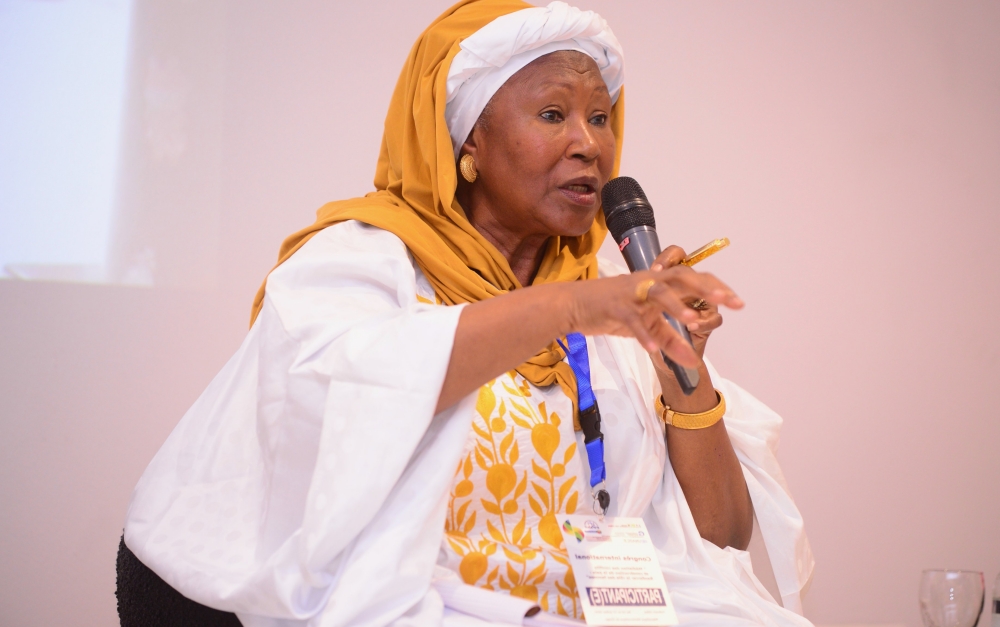Gambiaj.com – (BANJUL, The Gambia) – Former Gambian Vice President Fatoumata Jallow-Tambajang has opened up about the circumstances surrounding her abrupt dismissal in 2018, suggesting that her removal was politically engineered, with then-UN Permanent Representative Momodou Tangara playing a key role in the episode that triggered her downfall.
Speaking on West Coast Radio’s flagship program Coffee Time with Peter Gomez, Tambajang dismissed claims that she was sacked for signing a letter as “acting president” while President Adama Barrow was away on an official mission.
She explained that the correspondence in question was within the scope of administrative responsibilities President Barrow had formally delegated to her whenever he travelled.
According to her account, the controversy began when Herbert Robinson sought presidential backing for his candidature at UN Habitat.
With Barrow away in Mauritania, the letter was drafted under her supervision and vetted by then-Permanent Secretary Abdoulie Jarra, who confirmed with the Ministry of Foreign Affairs that the wording was in order. The letter was later transmitted through The Gambia’s UN Mission in New York, headed at the time by Tangara.
“When the letter reached Honorable Dr. Momodou Tangara, he sent it to the presidency, claiming that I had signed as acting president,” Tambajang recalled. “That was how the matter reached His Excellency. He confronted me upon his return, saying ‘they said’ I had acted unconstitutionally.”
She maintained that she signed the letter using the French diplomatic convention Par Ordre—meaning “on behalf of”—not as “acting president” as alleged. “This was not unconstitutional. It was part of the mandate the president himself gave me. But others convinced him otherwise,” she said.
Tambajang revealed that although President Barrow told her he had “forgiven her,” his attitude toward her remained cold, prompting her to enlist senior colleagues like Habib Drammeh and Bai Lamin Jobe to mediate. Still, she believes her dismissal was never about the letter.
“The issue was political. My conviction is that removing me was purely political, in order to bring in Ousainou Darboe,” she asserted. “And even though Darboe later replaced me, I congratulated him. He was a best friend of my late husband, so I had no bitterness.”
The former vice president said she nevertheless continued to mediate between Barrow and Darboe during their well-documented disputes, underscoring her commitment to national stability.
Reflecting on her tenure, Tambajang highlighted achievements such as The Gambia’s return to the Commonwealth and International Criminal Court, securing the chairmanship of the OIC Summit, negotiating debt relief with China, and laying the groundwork for a Women’s Enterprise Development Fund and a National Think Tank to harness diaspora expertise.
But on her dismissal, she was unequivocal: “It was not about an unconstitutional letter. It was engineered politically.”
In July this year, Fatoumatta Jallow-Tambajang announced her candidacy for the 2026 presidential elections. She made the declaration during the Sahel Governance Forum in Bijilo, held at the Sir Dawda Kairaba Jawara International Conference Center—a regional event focused on restoring trust in governance and advancing inclusive leadership.
Using the platform for a political call to action, Tambajang urged more women across the Sahel to seek political office in a region still dominated by patriarchal norms and fragile democratic institutions.










